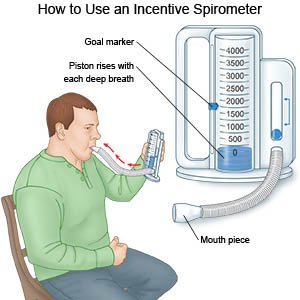Revision Total Joint Arthroplasty
Medically reviewed by Drugs.com. Last updated on Aug 4, 2025.
What do I need to know about revision total joint arthroplasty?
Revision total joint arthroplasty is surgery to fix or replace an artificial joint. You may need a revision arthroplasty if your artificial joint becomes loose, moves out of place, or breaks. You may need this surgery if the bone around your artificial joint gets weak or damaged over time. You may also need this surgery if you have severe pain or an infection in your joint.
How do I prepare for surgery?
- Your surgeon will tell you how to prepare. He or she may tell you not to eat or drink anything after midnight on the day of surgery. Arrange to have someone drive you home after surgery.
- Tell your surgeon about all medicines you currently take. He or she will tell you if you need to stop any medicine for surgery, and when to stop. He or she will tell you which medicines to take or not take on the day of surgery.
- Tell your surgeon about all your allergies, including medicines, antibiotics, and anesthesia.
- You may need to have blood or urine tests. You may also need an MRI or CT scan. Do not enter the MRI room with anything metal. Metal can cause serious damage. Tell the healthcare provider if you have any metal in or on your body. Contrast liquid may be used to help the joint show up better in MRI or CT pictures. Tell the healthcare provider if you have ever had an allergic reaction to contrast liquid.
- An IV will be put in a vein. You may get liquids or medicine through the IV.
What will happen during surgery?
Your surgeon will make an incision over the joint. The artificial joint will be repaired or removed. If necessary, a new artificial joint will be placed and attached to the bone with hardware, such as wires or screws. The incision will be closed with stitches and covered with a bandage.
What should I expect after surgery?
You will be taken to a room where your heart and breathing will be monitored. Do not get out of bed until your healthcare provider says it is okay. A bandage may cover your wound to help prevent infection. You may be able to go home after healthcare providers see that you are okay.
After surgery:
You are taken to a room where your heart and breathing will be monitored. Do not get out of bed until your healthcare provider says it is okay. A bandage may cover wounds to help prevent infection. You may be able to go home after healthcare providers see that you are okay.
- You will be helped to walk around after surgery. Movement will help prevent blood clots.
- Take deep breaths and cough 10 times each hour. This will decrease your risk for a lung infection. Take a deep breath and hold it for as long as you can. Let the air out and then cough strongly. Deep breaths help open your airway. You may be given an incentive spirometer to help you take deep breaths. Put the plastic piece in your mouth and take a slow, deep breath, then let the air out and cough. Repeat these steps 10 times every hour.

- Medicines may be given to relieve or prevent pain, nausea, or swelling. Antibiotics help prevent or treat a bacterial infection. Blood thinners help prevent blood clots. You may bleed or bruise more easily while you are taking blood thinners.
What are the risks of revision total joint arthroplasty?
You may get an infection or bleed more than expected. You may develop a life-threatening blood clot. You may need a bone graft if the bone around your artificial joint is badly damaged. Nerves, blood vessels, ligaments, or muscles may be damaged. Your joint may become stiff, numb, and more painful. Your joint movement may not be the same as it was before. You may have trouble doing your daily activities.
Care Agreement
You have the right to help plan your care. Learn about your health condition and how it may be treated. Discuss treatment options with your healthcare providers to decide what care you want to receive. You always have the right to refuse treatment. The above information is an educational aid only. It is not intended as medical advice for individual conditions or treatments. Talk to your doctor, nurse or pharmacist before following any medical regimen to see if it is safe and effective for you.© Copyright Merative 2025 Information is for End User's use only and may not be sold, redistributed or otherwise used for commercial purposes.
Further information
Always consult your healthcare provider to ensure the information displayed on this page applies to your personal circumstances.
